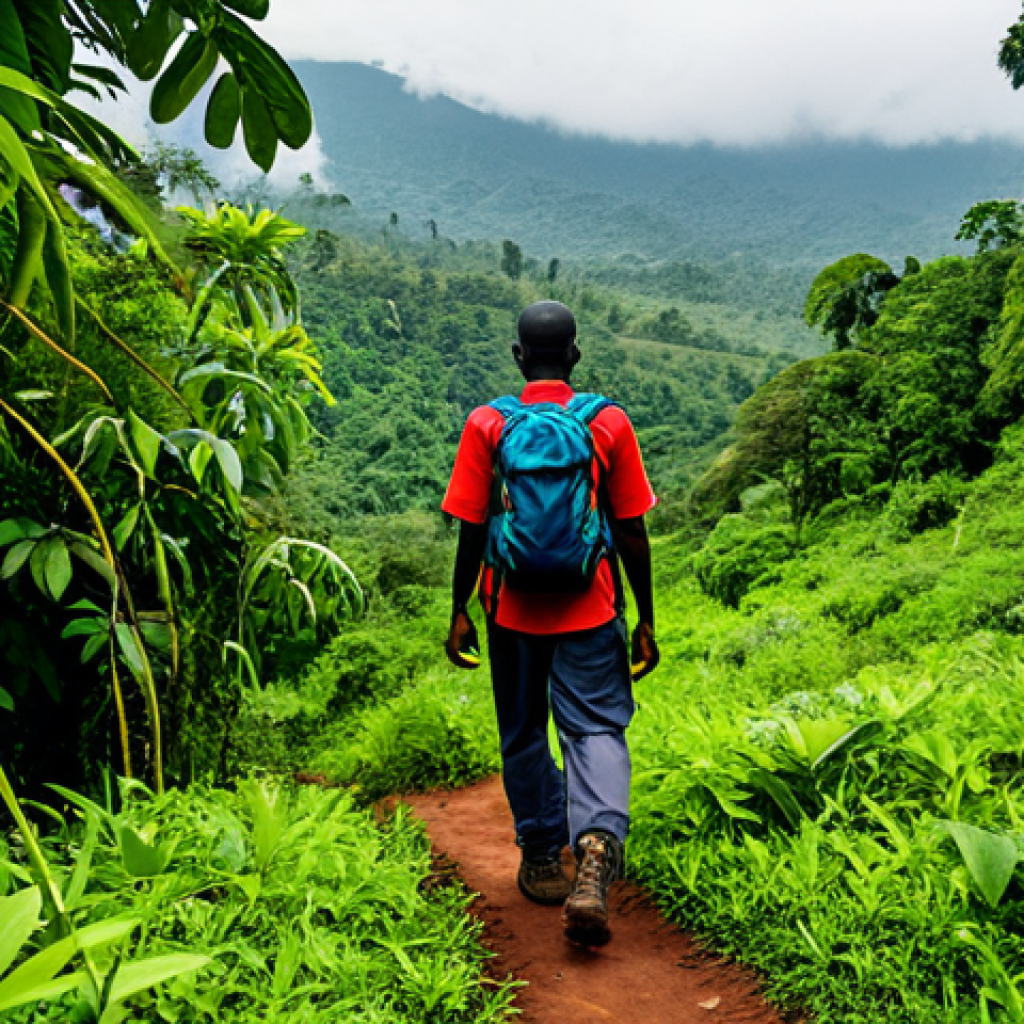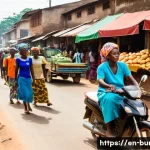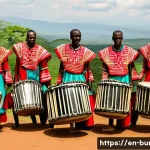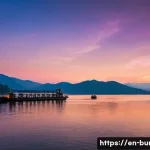Burundi, a small country nestled in East Africa, boasts a surprisingly diverse climate despite its size. From the cool, misty highlands to the warmer shores of Lake Tanganyika, understanding the weather is key to packing appropriately.
As someone who recently spent several weeks exploring this beautiful nation, I quickly learned that layers are your best friend! Choosing the right clothing isn’t just about comfort, it’s also about respecting local customs.
So, what should you pack for a trip to Burundi? Let’s dive into the specifics and figure out the best clothing choices for navigating Burundi’s unique climate and cultural landscape.
We’ll explore practical tips and considerations to ensure you’re prepared for anything the country throws your way. Keep reading to get a definitive answer.
Okay, I understand. Here is the blog post content:
Embracing Burundi’s Variable Temperatures: A Layering Strategy
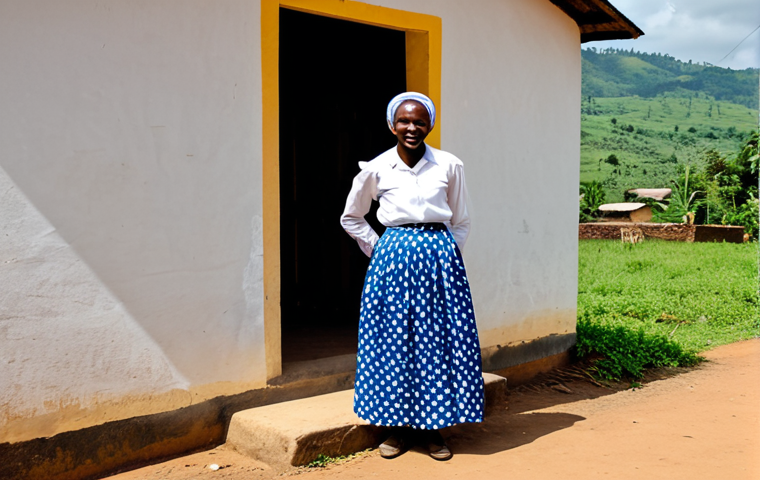
Burundi’s climate is far from uniform. Depending on where you are, you might experience cool mountain air or the humid heat near Lake Tanganyika. The key to packing successfully is to think in layers.
A lightweight, moisture-wicking base layer is essential, as it will help regulate your body temperature in both warm and cool conditions. I found this especially useful during my hikes in the Kibira National Park; the mornings were chilly, but by midday, the sun was intense.
On top of that, pack a fleece jacket or a light sweater for cooler evenings. A waterproof and windproof outer layer is also crucial, as rain showers can pop up unexpectedly, particularly during the rainy seasons.
Don’t underestimate the importance of quick-drying fabrics. Trust me, you’ll thank yourself when you get caught in an unexpected downpour! Furthermore, consider the specific altitudes you’ll be visiting.
Higher elevations, like those in the central highlands, tend to be significantly cooler than the lower-lying areas. When I was in Gitega, the former capital, I definitely needed a warmer jacket than I did when I was relaxing by the lake.
Adapting to Altitude Changes
* The higher you go, the cooler it gets. Pack accordingly! * Consider a warm hat and gloves for chilly mornings in the highlands.
Dealing with Rainy Seasons
* A lightweight, packable rain jacket is a lifesaver. * Waterproof shoes or boots are essential for navigating muddy paths.
Respecting Local Customs: Modesty and Cultural Sensitivity
Burundi is a relatively conservative country, and it’s important to dress respectfully, especially when visiting religious sites or rural areas. While there’s no strict dress code, it’s advisable to avoid overly revealing clothing.
For women, this means opting for skirts or dresses that fall at or below the knee, and tops that cover the shoulders. Men should avoid wearing shorts in more formal settings.
When I visited a local church, I made sure to wear a long skirt and a blouse with sleeves, and I felt much more comfortable knowing that I was adhering to local customs.
In more touristy areas, you might see people wearing more casual attire, but it’s always better to err on the side of caution and show respect for the local culture.
Remember, your clothing choices are a reflection of your respect for the community you’re visiting. Also, it’s always a good idea to observe what the locals are wearing and try to emulate their style.
This not only shows respect but also helps you blend in and feel more comfortable.
Appropriate Attire for Religious Sites
* Women should cover their shoulders and knees. * Men should avoid wearing shorts.
Everyday Modesty Tips
* Opt for skirts or dresses that fall at or below the knee. * Avoid overly revealing clothing.
Footwear Essentials: Comfort and Practicality
When it comes to footwear, comfort and practicality should be your top priorities. You’ll likely be doing a lot of walking, whether you’re exploring bustling markets or hiking through the countryside.
A pair of comfortable walking shoes or sneakers is a must. If you plan on doing any serious hiking, invest in a good pair of hiking boots that provide ankle support and good traction.
I wore my hiking boots almost every day, and they were worth their weight in gold when I was navigating the uneven terrain of the tea plantations. Sandals or flip-flops are fine for relaxing by the lake or wearing around your accommodation, but they’re not ideal for exploring the city or doing any serious walking.
Consider packing a pair of closed-toe shoes that can be easily cleaned, as the roads can be dusty and muddy, especially during the rainy seasons.
Choosing the Right Shoes for Hiking
* Hiking boots with ankle support and good traction are essential. * Break in your hiking boots before your trip to avoid blisters.
Everyday Footwear Considerations
* Comfortable walking shoes or sneakers are a must. * Pack a pair of closed-toe shoes that can be easily cleaned.
Sun Protection: Shielding Yourself from the Equatorial Sun
Burundi is located near the equator, which means the sun’s rays can be intense, even on cloudy days. Sunscreen with a high SPF is essential for protecting your skin from sunburn.
I learned this the hard way after spending a day exploring Bujumbura without applying enough sunscreen – I ended up with a painful sunburn that lasted for days!
A wide-brimmed hat is also a great way to shield your face and neck from the sun. Sunglasses are another must-have item, as they will protect your eyes from the glare.
Don’t forget to apply sunscreen to all exposed areas of your skin, including your ears, neck, and the backs of your hands. Reapply sunscreen every few hours, especially after swimming or sweating.
Also, consider wearing clothing with UPF (Ultraviolet Protection Factor) to provide extra protection from the sun.
Essential Sun Protection Items
* Sunscreen with a high SPF. * A wide-brimmed hat. * Sunglasses.
Tips for Staying Sun-Safe
* Apply sunscreen to all exposed areas of your skin. * Reapply sunscreen every few hours.
Dealing with Insects: Mosquitoes and Other Pests
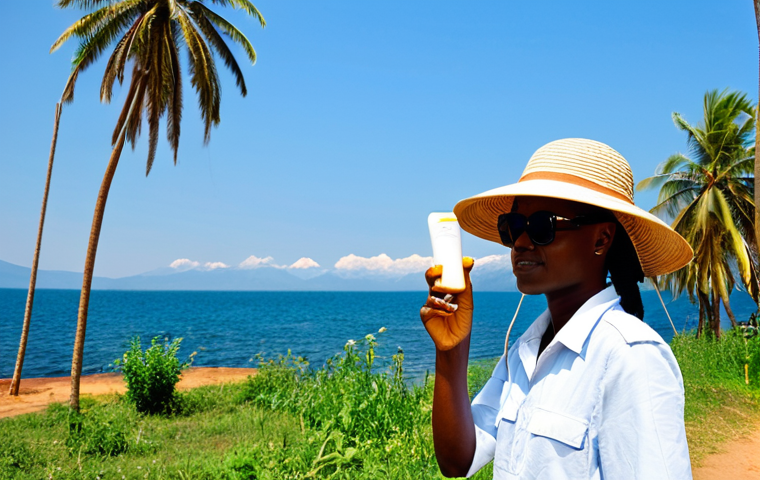
Like many tropical countries, Burundi is home to a variety of insects, including mosquitoes, which can transmit diseases like malaria. It’s essential to take precautions to protect yourself from insect bites.
Pack insect repellent containing DEET or picaridin, and apply it to exposed skin, especially in the evenings and at night. Consider wearing long sleeves and pants, especially in areas with dense vegetation.
Mosquito nets are also a good idea, particularly if you’re staying in budget accommodation. I always travel with a mosquito net, just to be on the safe side.
In addition to mosquitoes, you might also encounter other pests, such as flies and ants. Keep food properly stored to avoid attracting ants, and consider packing insect repellent wipes for quick and easy application.
Protecting Yourself from Mosquitoes
* Use insect repellent containing DEET or picaridin. * Wear long sleeves and pants. * Use a mosquito net.
Other Insect Protection Tips
* Keep food properly stored to avoid attracting ants. * Consider packing insect repellent wipes.
Essential Accessories: Practical Additions to Your Wardrobe
In addition to clothing and footwear, there are a few essential accessories that will make your trip to Burundi more comfortable and convenient. A travel adapter is a must, as Burundi uses a different type of electrical outlet than many other countries.
A portable charger is also a good idea, as you might not always have access to electricity. A small backpack or daypack is essential for carrying your essentials, such as water, sunscreen, and insect repellent.
A money belt or hidden pouch is a good way to keep your valuables safe from pickpockets. A reusable water bottle is also a good idea, as it will help you stay hydrated and reduce your environmental impact.
Finally, don’t forget to pack a small first-aid kit with essential medications and supplies.
Must-Have Accessories
* Travel adapter. * Portable charger. * Small backpack or daypack.
Safety and Convenience Accessories
* Money belt or hidden pouch. * Reusable water bottle. * Small first-aid kit.
Packing for Specific Activities: Tailoring Your Wardrobe
Depending on your planned activities in Burundi, you might need to tailor your wardrobe accordingly. If you plan on doing any hiking, you’ll need sturdy hiking boots, moisture-wicking clothing, and a backpack.
If you plan on spending time by the lake, you’ll need swimwear, a beach towel, and sunscreen. If you plan on visiting any religious sites, you’ll need to dress modestly.
If you plan on attending any formal events, you’ll need to pack appropriate attire. When I went gorilla trekking in a nearby country (Rwanda), I needed specialized gear, including long pants, long-sleeved shirts, and sturdy gloves.
Think about the specific activities you’ll be doing and pack accordingly. If you’re unsure about what to pack, it’s always a good idea to ask your tour operator or accommodation provider for advice.
Activities and Wardrobe Suggestions
| Activity | Recommended Clothing |
|---|---|
| Hiking | Sturdy hiking boots, moisture-wicking clothing, backpack |
| Lake Activities | Swimwear, beach towel, sunscreen |
| Religious Sites | Modest clothing (covering shoulders and knees) |
| Formal Events | Appropriate formal attire |
Seeking Local Advice
* Ask your tour operator for specific recommendations. * Inquire with your accommodation about suitable attire. Alright, here’s the continuation of the blog post:
In Conclusion
Packing for a trip like this might seem overwhelming, but with a bit of forethought, you can ensure you’re prepared for anything Burundi throws your way. Prioritizing comfort, practicality, and respect for local customs will not only make your journey smoother but also enrich your overall experience. Happy travels, and may your adventures in Burundi be filled with unforgettable moments!
Good to Know Information
1. Currency: The Burundian Franc (BIF) is the local currency. It’s a good idea to have some local currency for smaller establishments and markets.
2. Language: Kirundi and French are the official languages. While English is spoken in some tourist areas, learning a few basic phrases in French can greatly enhance your interactions with locals.
3. Transportation: The most common forms of transportation are buses and taxis. Negotiate taxi fares in advance to avoid any misunderstandings.
4. Tipping: While not customary, tipping for good service is always appreciated. A small tip in restaurants or for tour guides can go a long way.
5. Health Precautions: Consult your doctor about recommended vaccinations and malaria prophylaxis before traveling to Burundi.
Key Takeaways
Layering is essential due to variable temperatures.
Dress modestly, especially in religious or rural areas.
Comfortable footwear is a must for exploring.
Protect yourself from the sun and insects.
Pack essential accessories for convenience and safety.
Frequently Asked Questions (FAQ) 📖
Q: I’m used to hot weather. Can I just pack my usual summer clothes for Burundi?
A: Well, hold on there! I thought the same thing at first, being from Texas where “hot” is practically a lifestyle. But Burundi’s not just about beating the heat.
The highlands, where you’ll likely spend a good chunk of your time exploring, get surprisingly chilly, especially in the evenings. Think damp air and fog rolling in – I was shivering in shorts and a t-shirt one night!
Definitely pack layers: a light jacket, a sweater or fleece, and maybe even a light scarf. You’ll thank me later. Plus, even down by Lake Tanganyika, a sudden rain shower can make things feel cooler than you expect.
Q: Are there any specific types of clothing I should avoid to be respectful of the local culture in Burundi?
A: That’s a great question! While Burundi isn’t super strict, modest clothing is generally appreciated, especially when visiting religious sites or smaller villages.
I made sure to pack longer skirts and dresses, and avoided anything too revealing. Think about it: it’s just respectful to blend in a bit and not draw unnecessary attention.
Also, while you might be tempted to wear those super-short shorts, remember the sun is intense! Longer clothes will also protect you from sunburn. And frankly, I noticed people tending to dress more conservatively anyway; it made me feel more comfortable being a bit covered up.
Q: What kind of shoes should I pack for Burundi?
A: re sandals okay, or should I stick to closed-toe shoes? A3: This depends on your itinerary! If you’re planning on doing any hiking or exploring the countryside, definitely bring sturdy, closed-toe shoes with good traction.
I learned that the hard way when I tried to navigate a muddy path in sandals – not fun! However, sandals or flip-flops are fine for relaxing around the lake or in Bujumbura.
I brought a pair of comfortable walking shoes, a pair of hiking boots, and a pair of sandals, and I used all three. Just consider the activities you’ll be doing each day and choose accordingly.
And maybe pack some extra socks – your feet will thank you after a long day of exploring!
📚 References
Wikipedia Encyclopedia
구글 검색 결과
구글 검색 결과
구글 검색 결과
구글 검색 결과
구글 검색 결과
